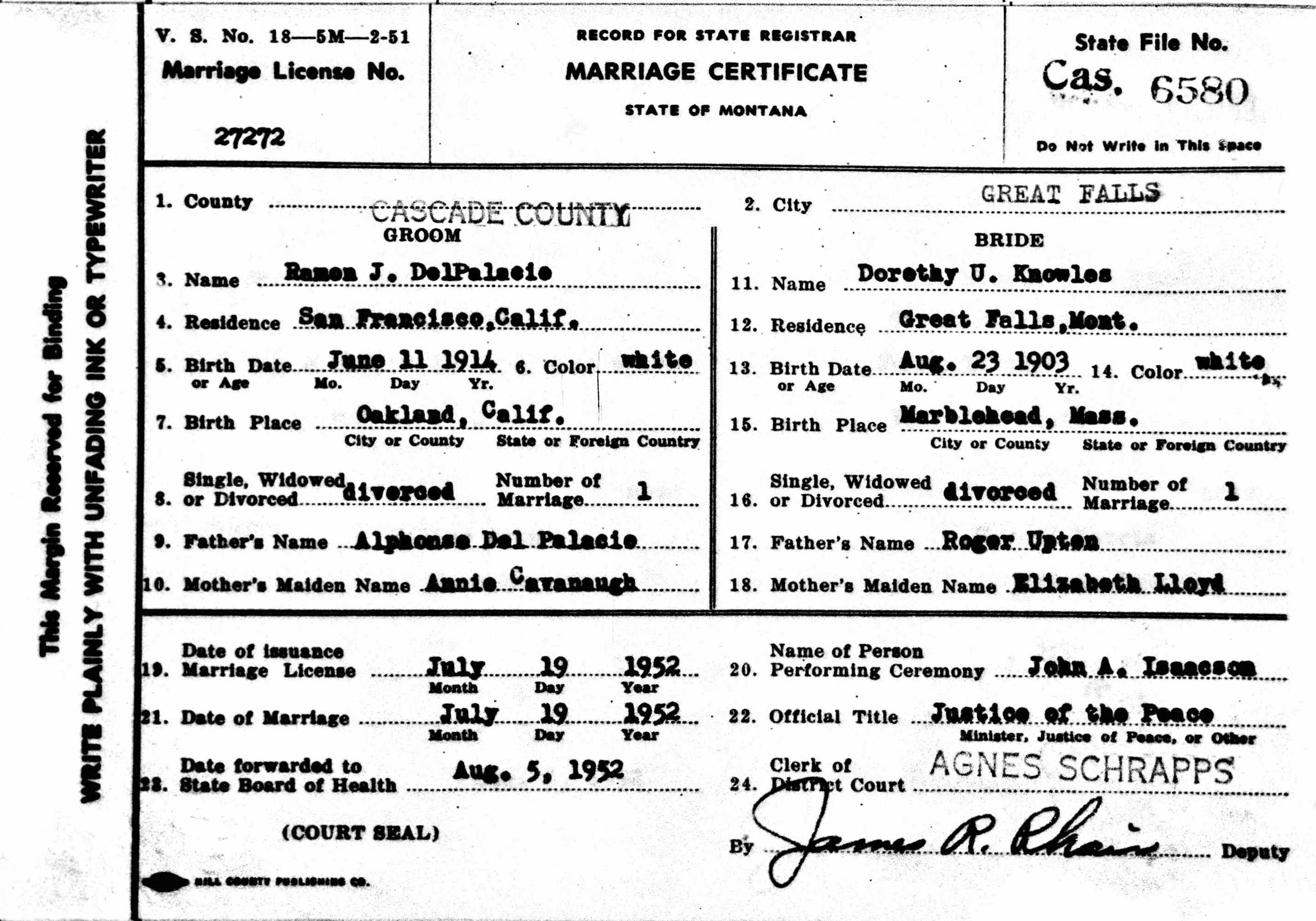
Marriage-Kno...

Roger was born on 15 SEP 1873 in Peabody, Massachusetts, the son of unknown parents.
He died on 9 JAN 1931 in Marblehead, Massachusetts.
His wife was Elizabeth Phoebe Key Lloyd, who he married on 25 OCT 1899 in Wye House, Talbot County, Maryland. Their four known children were Lloyd (1900-?), Edward (1902-1977), Dorothy (1903-1992) and John Cloutman (1910-1960).
| Event | Date | Details | Source | Multimedia | Notes | ||||||
|---|---|---|---|---|---|---|---|---|---|---|---|
| Birth | 15 SEP 1873 |
|
|||||||||
| Death | 9 JAN 1931 |
|
|||||||||
| Census | 9 MAY 1910 |
|
|||||||||
| Census | 16 JAN 1920 |
|
|||||||||
| Census | 21 APR 1930 |
|
 Marriage-Kno... |
Note 1
United States Power Squadrons Inc. History has been defined as the ideas, acts, and events, which shape the future. USPS has been shaped by its history and to understand our present more fully, we must first look back into our past. Seldom does the complete story of an organization's founding survive the passage of time. So we grope today for much of the story of our beginnings. The gaps in what remains to us in the minutes, manuals and magazines of the early era have had to be filled in with assumptions and the memories of early recruits.
This much is certain: in the list of founding fathers the name of Roger Upton of Boston and Marblehead, Massachusetts stands pre-eminent. The "power squadron" idea was the projection of his thoughts. The power squadron spirit was the reflection of his enthusiasm and early growth was the fruition of his labors.
[NEW YORK YACHT CLUB FLEET, MARBLEHEAD, MASS.]
To begin our story we must go back in time to the world of boating at the turn of the century. Recreational yachting in the early 1900s was largely confined to sailing craft and large steam yachts manned by professional crews. The commercial ships of the day were all steam-driven. Steam had become king by the dawn of the twentieth century and commercial sailing schooners were fast becoming relics of a bygone era. Gasoline-driven craft were coming into their own by 1909 but with little enthusiasm on the part of out-and-out sailors. Yacht clubs taught and promoted the sport of sailing and as motor yachts joined the fleet there were few activities for them. Yachting was still for sailors and the new breed of powerboat men found scant fun on club cruises and almost none in racing.
(BOSTON YACHT CLUB, MARBLEHEAD, MASS.)
Roger Upton was a sailing member of the Boston Yacht Club in 1909 but, unlike so many other sailors, the newfangled powerboats captivated him. He owned a 50-foot ketch named Nirvana and often cruised up the coast to Maine. Because he was a businessman, and because wind power was so often unreliable, he bought a 35-foot motor launch with a gasoline engine to serve as tender for the ketch and to tow her when she was becalmed. The following year he installed a 20-horsepower convertible kerosene-gasoline engine in the ketch, making it possible for him to return to his business on time. The reliability of power appealed to him and he grew to love power boating.
How long the idea incubated in Upton's mind we'll never know but in the summer of 1911 he spread his thoughts before a small group of his colleagues at the Boston Yacht Club. Upton's idea was for a club-within-a-club, to embrace a select group of "gasoliners" who would develop such forms of cruising and racing as the new type of yachts allowed. To quote from one of his articles, "To my mind the organization can be of use to yachtsmen for three major reasons: first, improvement in navigating ability of power-boat owners; second, promotion of acquaintance and social intercourse by the power-boat owners; third, the fitting of power-boat owners to be of possible use to the Navy in time of war so that they might be received as volunteers should they so desire."
Upton was elected Rear Commodore of the Boston Yacht Club in 1912 and with the acceptance of his ideas was placed in charge of the unofficial Power Boat Division of the fleet. A self-taught navigator and stickler for doing things right, he soon kept the division's 36 members busy with studies, cruises, races and drills modeled after U.S. Naval maneuvers.
continue at
https://www.usps.org/index.php/squadron-emergency-response-assistance-team?type=article&id=384